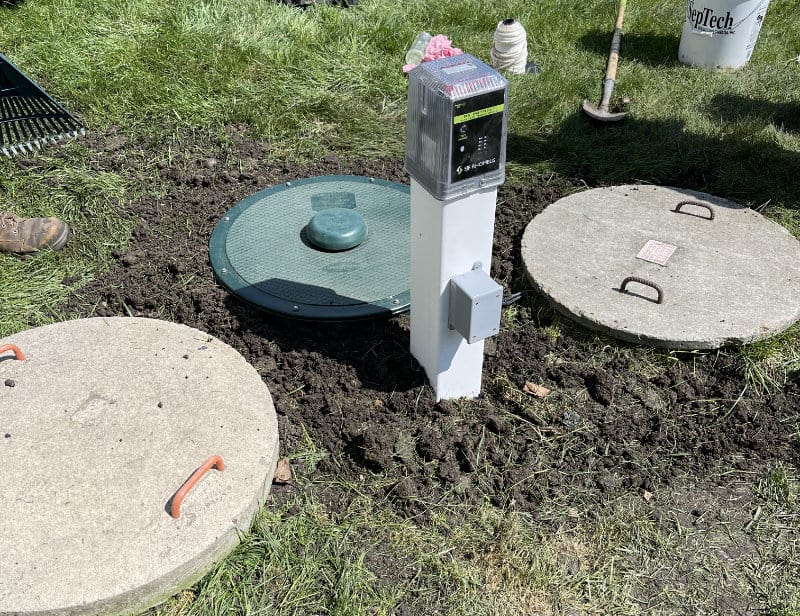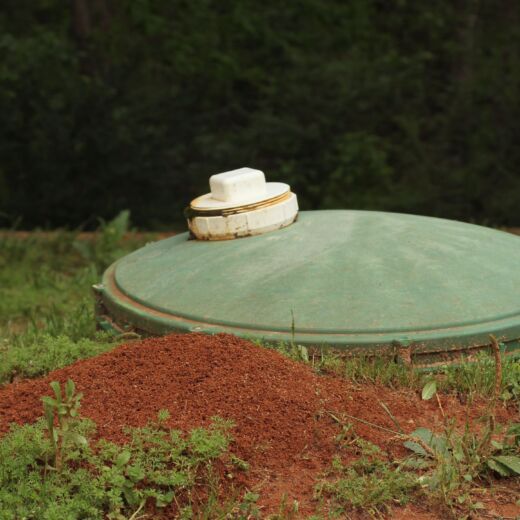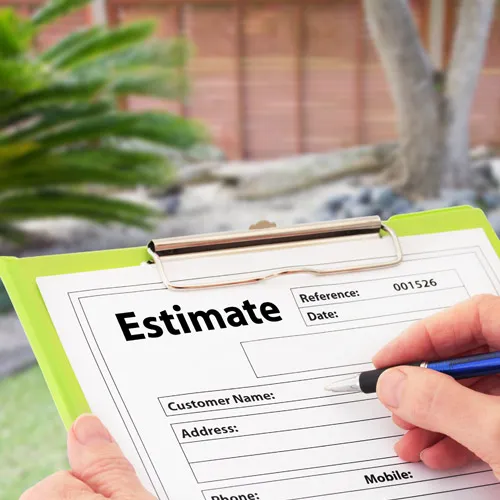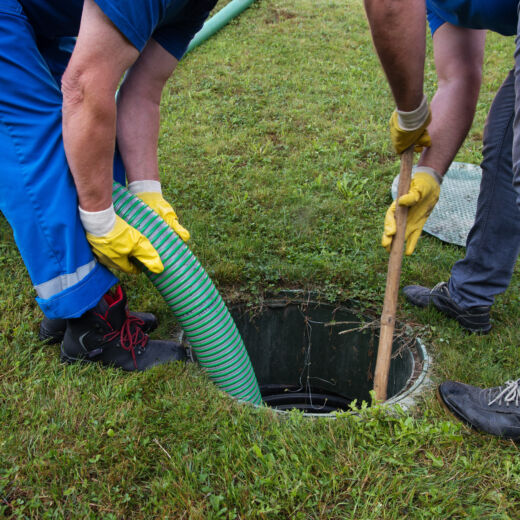Septic tank alarms are an important part of your septic system. It is ideal that you know how your septic alarm was installed, how it functions, and how to act when your septic alarm goes off. If you have a septic system, an alarm is a key component that will protect your home from any major issues.
What is a septic tank alarm?
A septic tank alarm gives you notice when something isn’t right in your system. Depending on the size of your tank and how much water you use, you typically have at least a day’s worth of water usage after the alarm goes off before you are at risk of something bad happening. Alarms are not a reason to panic, they are simply designed to let you know the system needs attention ahead of time so you have time to address it.
Septic tank alarms are triggered when operating conditions of the septic system fall out of the normal range. For example, if the water level is higher than it should be, the alarm’s job is to alert you to this condition before it becomes a threat with the potential of damaging your property.
Septic tank alarms can be installed in a variety of places. Some are exterior by the tank, some mount to the wall of your home or outbuilding, and some are inside the property. The type of alarm you have is dependent upon if it is part of a larger control system for more elaborate septic system designs. Some are even wireless, with a component in the tank, a component near the tank, and another component in the home to alert you to problems.
At the very minimum, septic tank alarms consist of three elements. One, a float or level monitoring system to gauge how high the liquid in the tank is getting, two, a visual component (beacon), and three, an audible (siren/horn/buzzer) component to give you the best chance of noticing that something is not right with the system before it is too late.
Most alarms have a “mute” function that allows you to turn off the audible signal once it has been set off, although the visual alert will stay on until the issue is resolved. If and when the situation returns to normal, the muted alarm will reset itself so that if another trouble situation arises, the audible alert will regain function, giving you the best chance of noticing that something is wrong with your system.
What kind of septic alarms are there?
The type of septic alarm is dependent on how the alarm is powered. There are several ways for a septic alarm to be powered, from a dedicated circuit, to exterior power, battery backups, and wireless alarms.
Typically, it is recommended that septic alarms be on a dedicated circuit, or at the very least, a separate circuit from the septic system’s effluent pump. It is very common for a pump failure to overload an electrical circuit and trip the breaker on that circuit. When that happens, if your alarm is on the same circuit it loses power as well and is no longer able to alert you to the issue.
When separate circuits are not possible, SepTech Canada can provide the option of an exterior alarm with failover protection. This alarm type has the ability to isolate the effluent pump from the alarm circuit, so that in the event of an overload and a tripped circuit breaker, the effluent pump will be isolated and the power to the alarm will remain working, allowing the alarm to continue to alert home owners to potential problems.
Some alarms have an additional battery backup circuit to give an added layer of protection in the case of power failure or a tripped circuit breaker on the circuit the alarm unit is operating from. The more ways you can protect the alarm’s function and continued operation, the better.
Wireless alarms can offer more flexibility when it comes to adding an alarm to a system that didn’t previously have one, such as when the float cables and electrical are not already run and in some cases, may not be possible. In the case of a home having a concrete patio, deck, or some other obstruction in between the home and the septic tank, it simply may not be possible to run cabling to install either a new electrical circuit outdoors, or run alarm cables between the tank and the home. In this case, either WiFi or Bluetooth is used to transmit signals between the home and the septic tank to let home owners know of potential problems.
Wireless systems can be great for adding flexibility to installations, but come at the risk of potential interference issues or other factors inhibiting the signal from getting through. If wireless signals cannot get between the transmitter and receiver, the alarms are rendered useless. Most wireless systems have a “heartbeat” system to make sure the signal is passing properly between the components. This system constantly tests the connection and if they’re unable to communicate between components due to interference, electrical or battery problems, another alarm signal is triggered to alert home owners to that problem. This provides the opportunity to resolve the communication problem before a septic emergency slips by undetected.
What does it mean when your septic alarm is going off?
A septic alarm goes off when the alarm detects that something is wrong with the septic system. If your alarm goes off, the first thing you should assume is that there is something wrong with your septic system and that water levels in your septic tank are higher than what is safe.
Sometimes “nuisance alerts” get triggered, meaning the alarm goes off when things aren’t actually in a problem state. These can be dangerous as homeowners often realize nothing is wrong and disable, unplug, or mute the alarm without properly resetting it. This turns off the protection they may need in the future.
Nuisance alerts can be as simple as improper float installation, or a float mast that requires adjustments. If the floats are not set properly, there may not be enough room between the levels at which effluent pumps kick in and when alarms are triggered. If this is the case, introducing a large volume of water quickly into the tank (such as emptying a soaker tub) may cause the alarm to trigger when nothing is actually wrong and the system is simply pumping out a larger dose to the drain field.
Another potential issue with alarms is the floats themselves – floats are mechanical devices that operate in somewhat “harsh” environments. As such, over time a float may fail or wiring may become corroded which prevents an alarm signal from being passed and homeowners from being alerted.
Most alarm units have a “test” function that will confirm the operation of the alarm unit and its ability to respond to an alarm signal. It is a good idea to test not just that alarm circuit, but at least annually to test the float itself. If the float or the connection between the float and the alarm unit has failed, the test button may function, but the alarm may not. Floats and alarms should be tested at least once a year.
What should you do if an alarm goes off?
First, check your tank to see if the level is higher than normal. If it is, or even if you’re unsure, call your local septic professional. A full-service septic company typically has a 24/7 emergency line with people standing by ready to help when you need them. If the person answering cannot immediately help, they will typically have a technician on standby to assist. Septic technicians often need to call you back in a few minutes and walk you through some diagnostic questions and possibly some basic troubleshooting.
If they cannot resolve the issue over the phone, the next step would potentially be a service call, vac truck, or both. The technician will know what is appropriate for the situation and advise you accordingly.
Here’s a little good news: for most rural properties, unlike our friends in the city, the only source of water going into the septic tank is the home it is attached to. This means that if you don’t use any more water, the level in your tank will not get any higher and you won’t be looking at a backup into your home. If your alarm goes off, alert the entire household to reduce the water usage in the home until the issue has been resolved.
Most alarms are set to give you up to a day’s worth of water usage so you can continue to operate your home, flush toilets, wash hands, etc. while your alarm condition is getting resolved, but it is always wise to play it safe.
How to tell if your septic alarm needs to be replaced:
Properly maintained alarm systems can last 15-20 years, and sometimes even more. As long as you’re checking their operation both at the alarm unit and the float itself regularly, you should feel protected when it comes to your home and prevention of flooding and backups. Like any electronics, when in doubt, change it out. The individual components of an alarm system are inexpensive, especially compared to the cost and amount of damage related to failed septic systems.
There are options for you, regardless of any obstructions or restrictions related to the layout of your property. Interior alarms, exterior alarms, and wireless alarms will have you covered one way or another, giving you and your home the protection you need, when you need it.
Why do you need a professional?
In short, you should always call a professional if your septic alarm is going off. SepTech’s 24/7 emergency response line always has technicians on standby, ready and waiting to speak with you about septic services & emergency scenarios.
Our techs will be on the phone with you within minutes. Once you’re connected, they’ll walk you through some basic diagnostic questions, have you check on a few things if you’re able to, and even walk through some troubleshooting when appropriate.
If the problem cannot be resolved over the phone, our technicians will review your options and next steps and discuss any costs involved with resolution. Our commitment to clients means we are available, always, to help when you need us.
There is NO good reason not to have an alarm. Even brand new pumps are still mechanical devices. Impellers can get jammed, electrical and float-related problems can happen, and when they do, you really need to know about it before your system backs up into the home. Even if your system was installed at a time when alarms weren’t yet mandatory, that does not mean you shouldn’t have one. Everyone with a septic system needs to have a properly functioning alarm system. Period.
We have 24/7 emergency service and are prepared to answer any questions you may have about your septic system and alarm. SepTech offers the highest quality solutions to septic system issues. If you need an inspection or maintenance, just call (780) 640-1518 or fill out our contact form!




